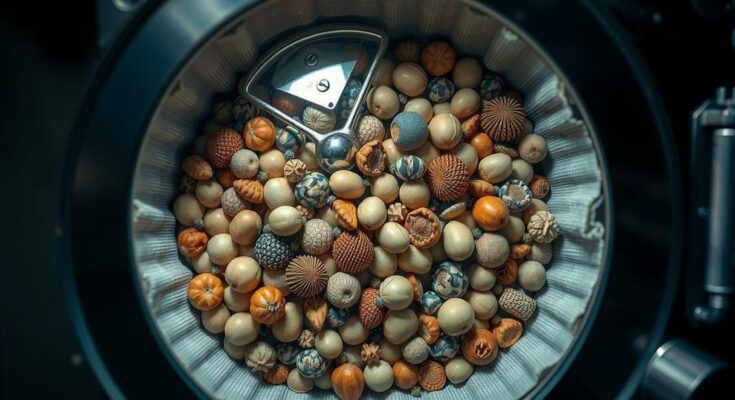The Arctic Global Seed Vault has received a new deposit of thousands of seed samples, including 21 Palestinian species, amid ongoing food insecurity in Gaza. The facility, designed to safeguard global plant diversity, now houses approximately 1.3 million seed varieties, serving as a crucial insurance policy against natural and manmade disasters.
On October 23, 2024, it was reported that the Global Seed Vault, also known as the “doomsday vault,” located in the Arctic region, has welcomed a significant influx of seed samples, including those from Palestine, amid ongoing conflict and food insecurity in Gaza. Established in 2008, this facility serves as a global insurance policy for plant diversity in the face of potential natural disasters, geopolitical conflicts, climate change, and health crises. On Tuesday, over 30,000 seed samples from a record 23 organizations across 21 nations were added to the vault located in Longyearbyen on Spitsbergen Island, approximately 1,300 kilometers (about 800 miles) from the North Pole. This secure location is often likened to a “Noah’s Ark” for food crops, aimed at conserving plant varieties essential for sustaining a growing global population that is increasingly affected by the impacts of climate change. The vault currently houses around 1.3 million seed varieties, all of which are accessible for withdrawal by their owners at any time. Notably, among Tuesday’s depositions were 21 Palestinian seed varieties, including vegetables, millet, and herbs, which were contributed by the Palestinian Union of Agricultural Work Committees (UAWC). The Crop Trust, a partner in this initiative, announced that another shipment of seeds is anticipated in February from Sudan, a nation similarly grappling with war and famine. Crop Trust Director Stefan Schmitz emphasized the pressing threats posed by climate change and conflict, affecting food security for over 700 million individuals across more than 75 countries. He declared, “Genebanks are ramping up efforts to back-up seed collections, and we are proud to support them by providing a safe haven in Svalbard.” The design and location of the vault ensure resilience against disasters. Positioned at a high altitude and distanced from conflict-prone areas, it is engineered to withstand external threats. Additionally, in the event of a refrigeration system failure, the surrounding permafrost will help maintain the necessary low temperature. This recent deposit underscores the critical role that such facilities play in preserving agricultural biodiversity for future generations.
The Global Seed Vault, inaugurally opened in 2008 and situated in the Svalbard archipelago, operates as a secure repository for the preservation of seed diversity globally. The initiative aims to protect against various potential crises, including climate change, war, and natural disasters that can threaten food security. With over 1.3 million varieties stored, it serves as a safeguard for crops essential for sustaining a growing population. Recent contributions from countries experiencing conflict highlight the importance of this facility in the contemporary context of international food security challenges.
In summary, the recent inclusion of Palestinian seed varieties in the Global Seed Vault represents a vital effort to preserve agricultural diversity amid the challenges posed by conflict and climate change. The challenges to food security are substantial, as emphasized by experts, necessitating facilities such as the Seed Vault, which act as crucial safeguards for the future of global agriculture. This initiative not only aims to protect crops for current generations but also seeks to ensure food security for future populations in an increasingly uncertain world.
Original Source: phys.org




